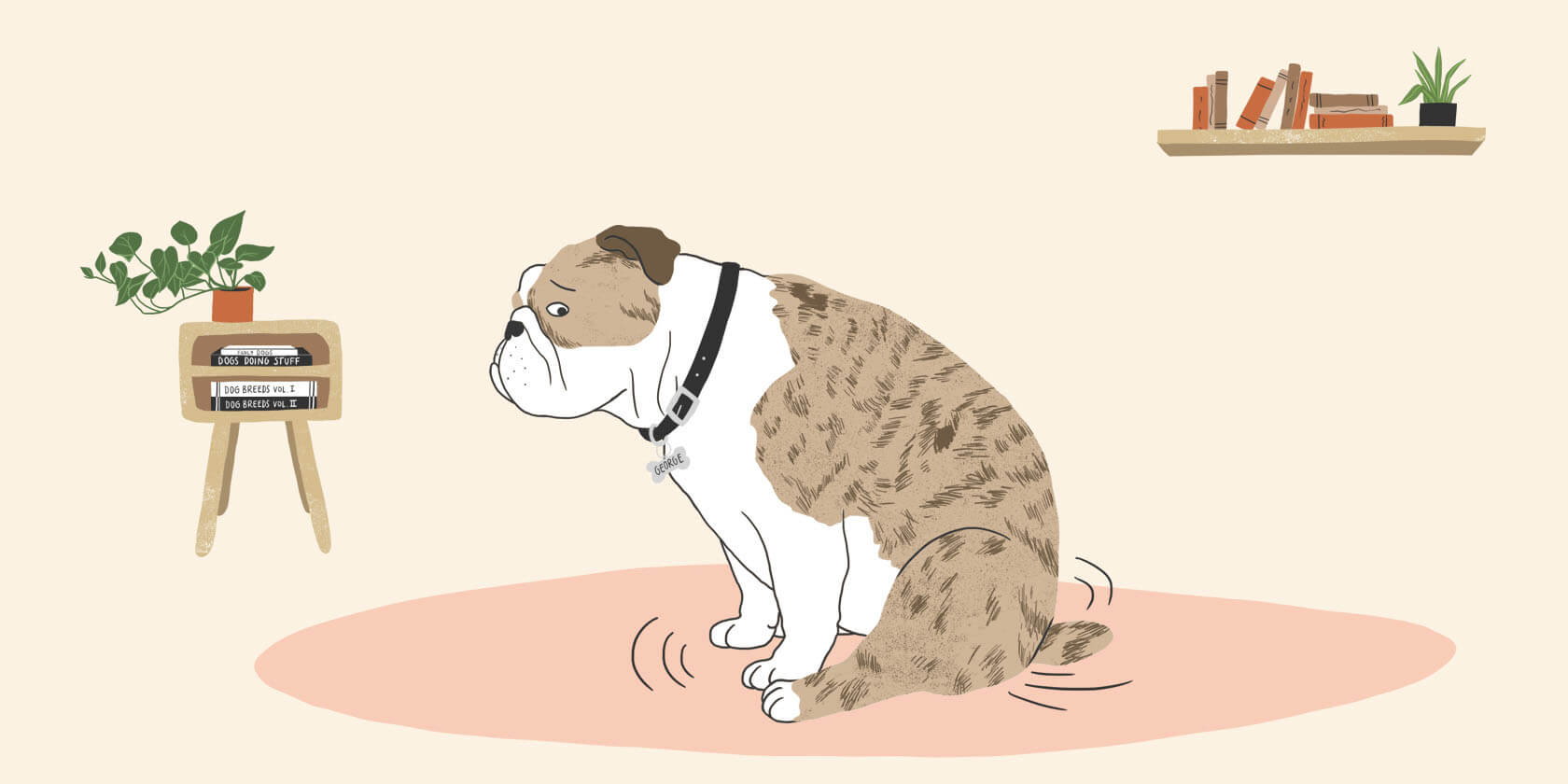If your dog has been scratching, scooting, or shaking more frequently, they may be suffering from an itch-inducing condition. Since itch can cause your dog unnecessary discomfort and suffering, it’s important to work with your veterinarian to determine why they’re itching, and the best way to help stop the itch.

There are two types of prolonged itch — seasonal and chronic (year-round).
Seasonal Itch in Dogs
Environmental allergens like mold, grass, and different types of trees don’t just cause allergies in people — our dogs can get them, too. For dogs, these allergies often present themselves as itch and red skin, rather than sneezing or a runny nose and eyes.
Seasonal itch happens periodically throughout the year — typically anywhere from a couple of weeks to a 2 to 3-month period of time. Your dog will usually experience itch at the same time each year.
Seasonal itch can be caused by things like an allergy to something that has a season, like ragweed (late August to mid-November) or fleas (May to November in northern climates). As the seasons change, the things causing your dog to itch (like certain types of plants) go out of season, giving your dog a temporary break from that itchy feeling.
If you think your dog may be suffering from seasonal itch, work with your veterinarian to determine the cause. Treatment may vary depending on the underlying cause of your dog's seasonal itch, but your vet will perform a physical examination and diagnostic tests to figure out the best course of action to help your dog. Seasonal itch can sometimes be managed with medications that work for a period of time to relieve their itchiness. Or, if the itch is related to fleas, putting your dog (and all other pets in your home) on a year-round flea control medication is needed.
If you move to (or travel to) a different climate, your dog may experience seasonal itch caused by new allergens (or a seasonal itch can transform into a chronic itch depending on the types of allergens present in the new environment).
Chronic Itch in Dogs
Unlike seasonal itch, chronic itching in dogs lasts continuously throughout the year. A dog with chronic itch likely has a food allergy, an allergy to something in their environment (like mold or dust mites), multiple pollen allergies in warm climates, or a flea allergy.
If you suspect your dog has chronic itch, your veterinarian can help find the cause of it. They will recommend ways to help relieve your dog’s itch, like anti-itch medication, flea preventative medication (for a flea allergy), or removing certain foods from your dog’s diet (for a food allergy).
Dogs can also have seasonal flare-ups on top of their chronic itch symptoms. When this happens, be sure to ask your veterinarian about other things they can do, such as additional anti-itch medications to help provide more relief during these times. Flare ups can also be caused by parasites like fleas and mites, skin infections and food allergies, and these also need to be diagnosed and treated by your veterinarian. Often when these “flare factors” are treated, the original anti-itch medication goes back to working again.
Dogs with prolonged or recurrent itch due to allergies are often diagnosed with atopic dermatitis, a common chronic skin condition that affects up to 10% of dogs worldwide.1, 2 Atopic dermatitis is a condition that frequently gets worse over time, so it’s important to treat it early to control the itch. Without proper treatment of your dog’s itch, not only can they experience prolonged discomfort and the red, scaly, and irritated (and smelly) skin associated with inflammation, but they’re at a higher risk for skin and ear infections.3
This irritating and sometimes painful condition can cause your dog to lose interest in things they love because they’re too busy scratching.4 And, since the itch doesn’t have an off switch, their constant scratching, licking, and shaking can keep you up at night.
While chronic itching in dogs might not be curable, working with your veterinarian to find an anti-itch protocol that works for your dog will help them lead a happy, less-itchy life.
ZPC-00436R2
- Olivry T, Bäumer W. Atopic itch in dogs: pharmacology and modeling. In: Cowan A, Yosipovitch G, eds. Pharmacology of Itch, Handbook of Experimental Pharmacology. 2015:357-369. doi:10.1007/978-3-662-44605-8_19.
- Nuttall T, Uri M, Halliwell R. Canine atopic dermatitis—what have we learned? Vet Rec. 2013;172(8):201-207. doi:10.1136/vr.f1134.
- Olivry T, DeBoer DJ, Favrot C, et al. Treatment of canine atopic dermatitis: 2010 clinical practice guidelines from the International Task Force on Canine Atopic Dermatitis. Vet Dermatol. 2010;21(3):233-248. doi:10.1111/j.1365-3164.2010.00889.x.
- Gonzales AJ, Humphrey WR, Messamore JE, et al. Interleukin-31: its role in canine pruritus and naturally occurring canine atopic dermatitis. Vet Derm. 2013;24:48-e12. doi:10.111/j.1365-3164.2012.01098.x.




